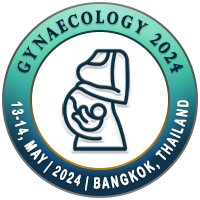
Yi-Hua Yang
The First Affiliated Hospital of Guangxi Medical University, ChinaTitle: Single-cell sequencing analysis of the maternal-fetal interface
Abstract
The microenvironment at the maternal-fetal interface is optimized to facilitate the development and survival of the fetus during pregnancy. It involves a balance between cell populations and interactions of the fetal placenta with various cell types (ie, stromal cells, endothelial cells, immune cells, and fibroblasts) that are embedded in the maternal endometrium/decidua. Aberrant shifts in cell populations and deranged cell-cell interactions are closely related to pregnancy disorders. Thus, analysis of the dynamic changes in cell populations and their interactions at the maternal-fetal interface in normal and complicated pregnancies is essential to provide insights into the fundamental processes involved in the establishment and maintenance of normal pregnancy, and how these processes are dysregulated. Thus, informing novel pathways for therapeutic targets of pregnancy complications. Single-cell sequencing (SCS) is a powerful tool for transcriptome analysis at single-cell resolution. Combined with information on the developmental trajectory and function of different cell populations, SCS can provide an unparalleled opportunity for refining the spatiotemporal cell atlas to elaborate dynamic changes in cell populations and their interactions in tissues that consist of highly heterogeneous cell populations such as the maternal-fetal interface. This minireview briefly summarizes traditional methods and their limitations for analyzing maternal-fetal interface cell-cell interactions, and introduces the current applications, advantages, limitations, and prospective applications of SCS in research on maternal-fetal interactions.
Biography
WILL BE UPDATED SOON

